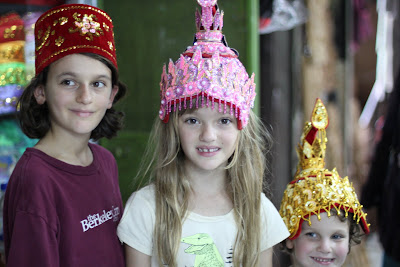 Scott Market, built in 1920's under British colonial rule
Scott Market, built in 1920's under British colonial rule
Named after a British civil servant who brought soccer to Burma

 No sprinkler system to put out fires in this market!
No sprinkler system to put out fires in this market!
Sand is in these tiny buckets,
supposedly capable of putting out a fire in the crowded market
Not the most reassuring sight
 Everyone changes money via the black market in Burma
Everyone changes money via the black market in Burma
The best rate is at the Scott Market in Yangon
They ONLY accept perfect, uncreased, unripped, unwritten-on US dollars
You get a better rate for hundred dollar bills,
so only bring hundreds, not 20's.
 The money changer liked to claim that certain US 100 dollar bills had some invisible imperfection
The money changer liked to claim that certain US 100 dollar bills had some invisible imperfection
so that he could charge us a worse rate.
So, Ken just kept on pulling out more and more hundred dollar bills
until the money changer just gave up and accepted our bills for the better rate.
 Thanakha, the paste from a tree that Burmese women paint on their faces
Thanakha, the paste from a tree that Burmese women paint on their faces
to protect them from sun and aging
They take the wood on the right, rub water on it, then spread it on their cheeks,
often with streaks or patterns in the paste.
The containers on the left are ready-made Thanakha
 Alms collected by the nuns, daily.
Alms collected by the nuns, daily.
Here's the alms aren't just rice, but are anything the shopkeepers have handy.
The nuns seem to be regulars collecting alms at certain Scott Market shops.
All shopkeepers seem to feel the need to give them something.
 Ceremonial headdress. A peacock means power in Burma.
Ceremonial headdress. A peacock means power in Burma.
A fighting peacock (?!) used to be a symbol of Burmese student opposition to the monarchy
in the 1960's, but that political group was disbanded by the junta.






















